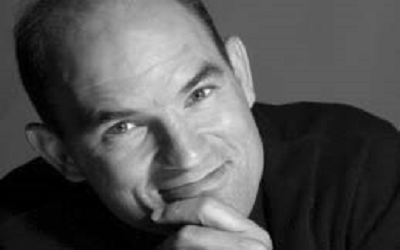Original Publication: HR.com
Original Publication Date: September 12, 2015
Salespeople are under enormous, unrelenting pressure. They’re expected to meet (or exceed) sales goals, and are often judged on a monthly or quarterly matrix, meaning even if they delivered last month or quarter, they start again from zero. Competition is tough and the non-stop pressure can make it challenging for salespeople to maximize their successes. How can salespeople improve their performance under pressure? They should look to the NFL for important strategies.
With the NFL season fast approaching, coaches, general managers, and fans are wondering how the rookies will do. Most would assume that looking at the results from the NFL Combine, an intense, four-day “job interview” for more than 300 college football players, would give a good indication of how well these rookies will perform. Most would be wrong!
At the Combine, held every February in Indianapolis, top executives, coaches, and other staff from all 32 NFL teams evaluate the nation’s top college football prospects for the upcoming NFL Draft. Many athletes see it as a make-or-break audition for getting drafted and playing in the NFL.
There’s only one problem with the Combine: it’s useless. Research has conclusively shown that the results from the Combine don’t predict who will be successful in the NFL. According to a study by Frank Kuzmits and Arthur Adams, professors at the University of Louisville, there’s no “consistent statistical relationship between Combine tests and professional football performance.” This study investigated the correlation between National Football League Combine test results and NFL success for players drafted for three different offensive positions (quarterback, running back, and wide receiver) during a six-year period, 1999–2004.
The Combine consists of a series of drills, exercises, interviews, aptitude tests, and physical exams designed to assess the skills of promising college football players. The results of these activities are supposed to predict the athletes’ performance in the NFL. Combine assessments include 10-, 20-, and 40-yard dashes, bench press, vertical jump, broad jump, the 20- and 60-yard shuttles and the three-cone drill. Performance criteria includes 10 variables, including draft order and position-specific data. With the notable exception of sprint tests for running backs, the Combine’s performance criteria were not predictive of who would be most successful.
How is it possible that such a large-scale, annual event could be so useless? On the surface, it would seem that testing prospective athletes this way would be the perfect gauge of their professional potential. Isn’t it an ideal method to create a baseline of performance? If not, what’s missing from the Combine equation? While the answer has powerful implications for athletes, it’s also relevant to anyone in the sales industry.
The Combine’s biggest failing is that it does not truly resemble what players will face in the real world, what they will need to be successful in the high-pressure environment of the NFL. Of course, athletic talent matters. Speed matters. Strength matters. But beyond a certain threshold of talent, it’s far more important to know how tenacious the player will be in unleashing his talent.
For instance, what decisions will he make when he shows up in the intensely competitive environment of training camp, where athletes are playing for a paycheck? How will he handle learning an NFL-sized playbook? Or reviewing game tape, looking at opposing teams and remembering critical drills? Or being given critical and honest feedback? And so on. The real world is about far more than how much a player can bench press or how fast he can run a three-cone drill in the short, artificial environment of a Combine. The NFL Combine is simply measuring the wrong criteria.
The same is true for salespeople. While things like product knowledge and industry experience matter, what differentiates the average sales performers from the top performers in the real world? The critical factor is how well they handle the pressures they face in their sales roles. While there are many ways that NFL players – and salespeople – deal with pressure, one quality that’s critical to their success is tenacity: the ability to persevere and sustain effort toward their long-term goals in spite of the setbacks they’ll inevitably face.
While focus has always been important to our success, it plays out differently in today’s modern society. Historically, when people’s basic needs were not being met, they needed to think more about short-term goals. When they didn’t have enough food or shelter, they were best served by quick, decisive responses. Hesitation could’ve been fatal. Nobel Prize winning psychologist Daniel Kahneman calls this “fast thinking.” Fast or “instinctual” thinking takes place in the neural circuitry of the lower brain. Survival tasks often involve these responses.
In modern society where these basic needs are met, our existence becomes less of a matter of day-to-day survival. Instead, our goals have become more physically and mentally distant. To accomplish such long-term goals, we have to generate more psychological effort to stay motivated and focused over the long haul. It is the neocortex of the brain which allows us to develop another thinking style to help us adapt. This thinking style is deliberate and voluntary, and can help us to perform feats like learning and mastering new tasks. Professor Kahneman calls this “slow thinking.”
This thinking style requires voluntary effort; the tasks that result from slow thinking require effort to perform. Making sound decisions, planning a strategy, identifying and anticipating obstacles then generating strategies to overcome them are tasks that demand deliberate, or slow, thinking. While it takes mental energy to formulate a strategy, it takes behavioral effort to execute it.
Salespeople who generate this mental and behavioral effort for extended times have a distinct advantage in meeting their long-term goals because they can focus for a longer period of time. They need to think beyond today’s sales, developing strategies that will sustain their success well into the future. Those forward-thinking individuals are seen as persistent, motivated, and tenacious. In effect, they are in a prolonged focus state that keeps them attending to the specific tasks needed to meet their long-term goals. As a result, these sales people continue to focus on doing the things they know they need to do – especially when things aren’t going their way – leading to greater long term success.
So, in the case of the NFL, when players get dropped down the depth chart, get injured, or when the team signs a free agent in their position, this is when the ability to perform under pressure and demonstrate tenacity shows its value. This ability to be tenacious, as opposed to the small differences in arbitrary tests during a high-pressure assessment like the Combine, will determine who the most successful NFL rookies will be.
It’s no different for salespeople – having product knowledge is important, but the real differentiator in performance is the ability to be tenacious, especially in face of the setbacks that all salespeople face. Those salespeople who can stay focused on their long-term goals, and “stay in the game” by doing the tough stuff when they are under pressure, will have greater success.
Author Bio
J P Pawliw-Fry, an internationally renowned expert, trainer, and speaker at the Institute for Health and Human Potential (IHHP), is one of the world’s most highly respected resources on pressure and performance. His New York Times Best Selling book, Performing Under Pressure (co-written with Hendrie Weisinger), provides actionable “pressure solutions” that maximize success during pressure situations, as well as real-world examples from his clients, including corporate executives, Olympic athletes, and Navy SEALS.
Email jp.pawliw-fry@ihhp.com

